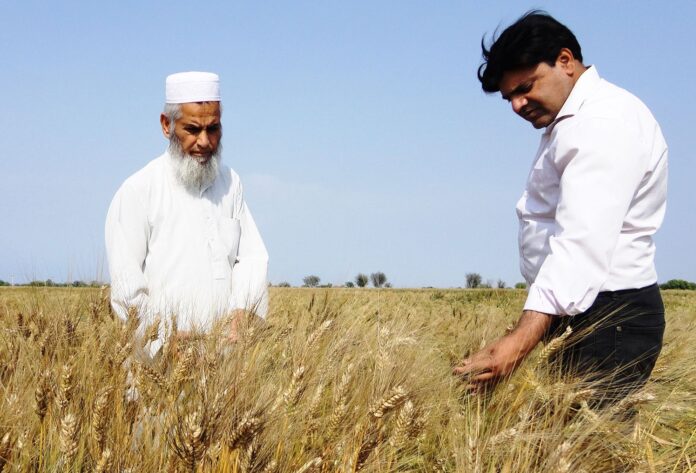ISLAMABAD: Prime Minister Shehbaz Sharif has formed a committee headed by Finance Minister Muhammad Aurangzeb to draft a wheat procurement plan for Food Year 2024-25, incorporating the IMF’s recommendations.
The committee includes the Minister for National Food Security and Research Rana Tanveer Hussain, the Minister for Commerce Jam Kamal Khan, and Advisor to the Prime Minister on Political Affairs and IPC, Rana Sana Ullah Khan.
The committee’s mandate includes reviewing the current regulatory framework of the wheat market, ensuring availability and price stability, and consulting stakeholders and provinces to finalize the wheat policy for Rabi 2024-25. Key areas under review include the support price, procurement recommendations for federal and provincial governments, and the overall regulatory structure.
The Economic Coordination Committee (ECC) recently instructed the Ministry of National Food Security and Research (MNFS&R) to formulate a strategy for withdrawing government involvement in wheat procurement and distribution, aiming to deregulate the market completely. This directive came during discussions on a summary about Passco’s domestic and imported wheat stock allocations for Food Year 2024-25.
MNFS&R reported that, as of April 1, 2024, Passco carried forward 7.266 million metric tons (MMT) of wheat, comprising 0.678 MMT of imported wheat (procured in 2021 and 2022), 0.588 MMT of domestic wheat (from 2022 and 2023), and 1.785 MMT of new domestic wheat procured in 2024. To address the deterioration risk of older imported wheat (0.555 MMT by October 1, 2024), Passco proposed a 50:50 release ratio of domestic and imported wheat for agencies/regions.
On July 24, 2023, the ECC approved this 50:50 supply ratio, with an exception for Gilgit-Baltistan (GB), where it was set at 75:25. On February 1, 2024, the ECC allocated 100% domestic wheat for GB for the rest of the financial year, against its 150,000 MT quota. GB later interpreted this decision as indefinite, but Passco contested it, arguing that GB was using 75% domestic wheat and not lifting the 25% imported portion.
GB, along with the Army and AJ&K, raised concerns about imported wheat’s quality, taste, and texture, requesting 100% domestic wheat. They also cited potential shortages during winter. The matter remains unresolved.




